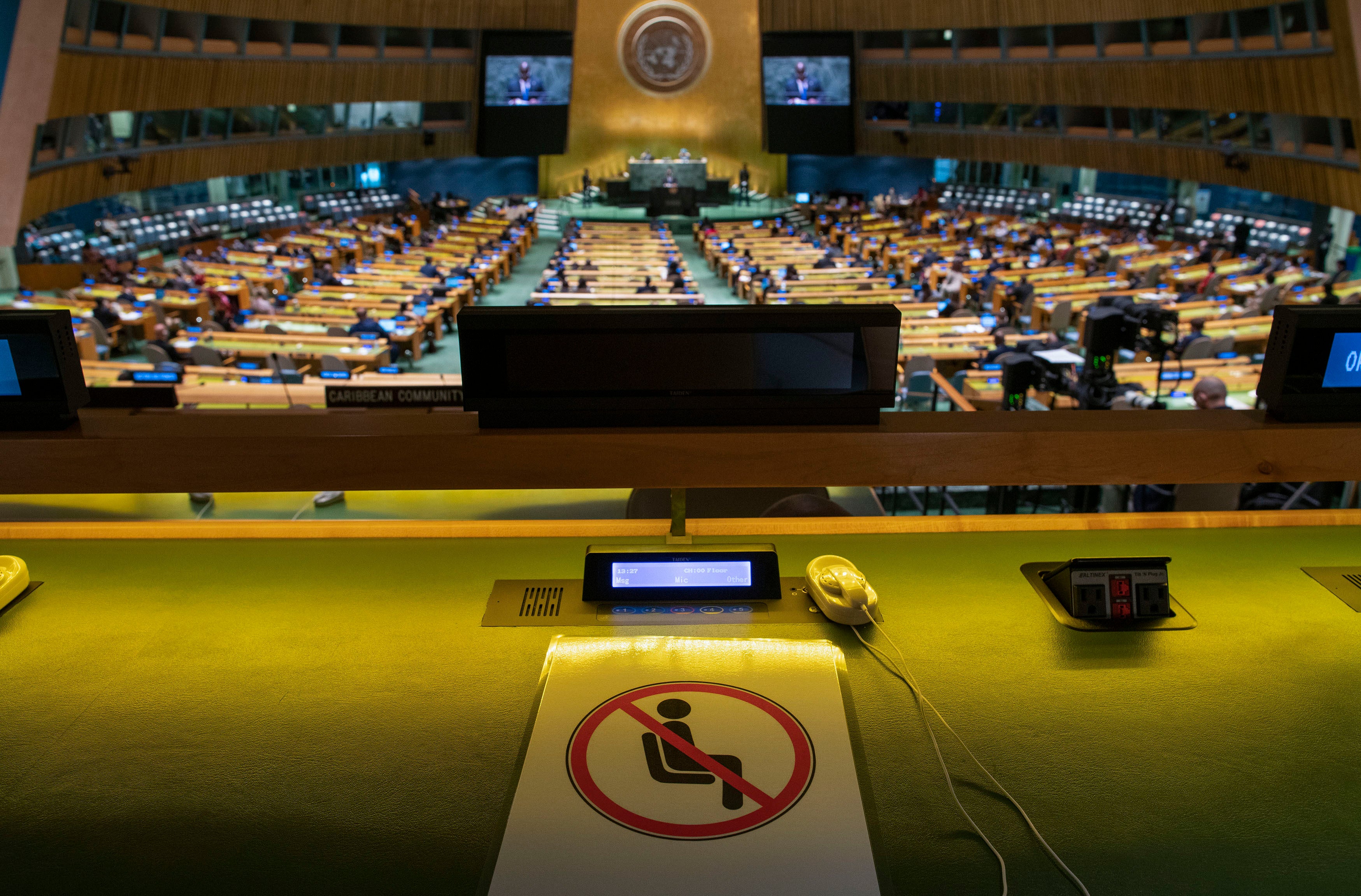Vaccine inequity comes into stark focus during UN gathering
The inequity of COVID-19 vaccine distribution will come into sharper focus Thursday as many of the African countries whose populations have little to no access to the life-saving shots step to the podium to speak at the U.N.’s annual meeting of world leaders

Your support helps us to tell the story
From reproductive rights to climate change to Big Tech, The Independent is on the ground when the story is developing. Whether it's investigating the financials of Elon Musk's pro-Trump PAC or producing our latest documentary, 'The A Word', which shines a light on the American women fighting for reproductive rights, we know how important it is to parse out the facts from the messaging.
At such a critical moment in US history, we need reporters on the ground. Your donation allows us to keep sending journalists to speak to both sides of the story.
The Independent is trusted by Americans across the entire political spectrum. And unlike many other quality news outlets, we choose not to lock Americans out of our reporting and analysis with paywalls. We believe quality journalism should be available to everyone, paid for by those who can afford it.
Your support makes all the difference.The inequity of COVID-19 vaccine distribution will come into sharper focus Thursday as many of the African countries whose populations have little to no access to the life-saving shots step to the podium to speak at the U.N.'s annual meeting of world leaders.
Already, the struggle to contain the coronavirus pandemic has featured prominently in leaders' speeches — many of them delivered remotely exactly because of the virus. Country after country acknowledged the wide disparity in accessing the vaccine, painting a picture so bleak that a solution has at times seemed impossibly out of reach.
“Some countries have vaccinated their populations, and are on the path to recovery. For others, the lack of vaccines and weak health systems pose a serious problem,” Norway's Prime Minister, Erna Solberg said in a prerecorded speech Wednesday. “In Africa, fewer than 1 in 20 people are fully vaccinated. In Europe, one in two are fully vaccinated. This inequity is clearly unfair.”
Countries slated to give their signature annual speeches on Thursday include South Africa, Botswana, Angola, Burkina Faso and Libya.
Also among them will be Zimbabwe where the economic ravages of the pandemic have forced some families to abandon the long-held tradition of taking care of their older people. And Uganda where a surge in virus cases have made scarce hospital beds even more expensive, leading to concerns over alleged exploitation of patients by private hospitals.
On Wednesday, during a global vaccination summit convened virtually on the sidelines of the General Assembly, President Joe Biden announced that the United States would double its purchase of Pfizer’s COVID-19 shots to share with the world to 1 billion doses, with the goal of vaccinating 70% of the global population within the next year.
The move comes as world leaders, aid groups and global health organizations have growing increasingly vocal about the slow pace of global vaccinations and the inequity of access to shots between residents of wealthier and poorer nations.
The World Health Organization says only 15% of promised donations of vaccines — from rich countries that have access to large quantities of them — have been delivered. The U.N. health agency has said it wants countries to fulfill their dose-sharing pledges “immediately” and make shots available for programs that benefit poor countries and Africa in particular.
During an anti-racism event on Wednesday commemorating a landmark but contentious conference 20 years ago, President Felix Tshisekedi of Congo pointed to the fact that only about 1 in 1,000 people in his country have gotten at least one shot.
The disparity in vaccine availability around the world “clearly does not demonstrate equality between the countries and peoples of this world,” Tshisekedi said.
Ukrainian President Volodymyr Zelenskyy likewise called out failures in sharing coronavirus vaccines during his speech Wednesday night, his hopes in 2020 of “effective multilateralism and effective international solidarity” dashed a year later, "where one thing is to share objectives and quite another is to share vaccines.”
Also on Thursday, foreign ministers are due to ponder climate change as a security issue when the Security Council, the U.N.’s most powerful body, meets in the morning.
Climate change has been a major focus during this week's General Assembly gathering. World leaders made “faint signs of progress” on the financial end of fighting climate change in a special United Nations feet-to-the-fire meeting Monday, but they didn’t commit to more crucial cuts in emissions of the heat-trapping gases that cause global warming.
___
Associated Press writers Zeke Miller in Washington and Jennifer Peltz at the United Nations contributed to this report. Follow Pia Sarkar on Twitter at http://twitter.com/PiaSarkar_TK